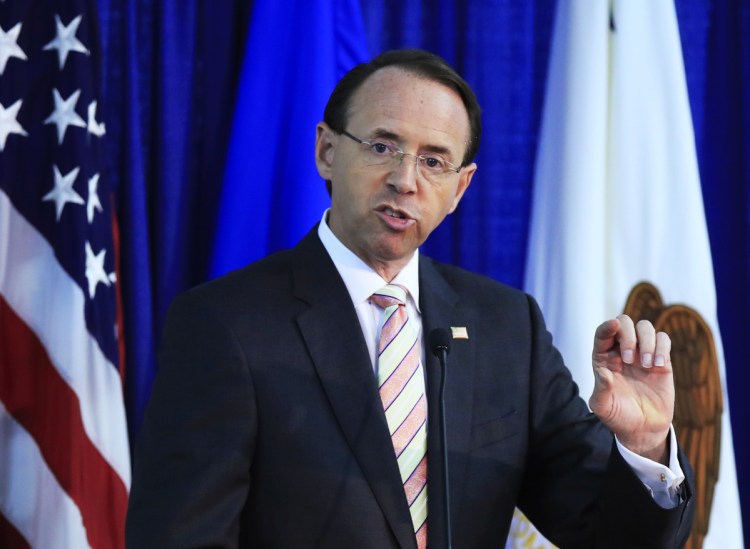The Zheng drug trafficking organization was hardly clandestine. The Shanghai-based network sold synthetic narcotics, including deadly fentanyl, on websites posted in 35 languages, from Arabic and English to Icelandic and Uzbek.
The Chinese syndicate bragged that its laboratory could “synthesize nearly any” drug and that it churned out 16 tons of illicit chemicals a month. The group was so adept at smuggling, and so brazen in its marketing, that it offered a money-back guarantee to buyers if its goods were seized by U.S. or other customs agents.
Over the last decade, federal officials say, the Zheng group mailed and shipped fentanyl and similar illicit chemicals to customers in more than 25 countries and 35 U.S. states. U.S. officials say the syndicate’s success, laid bare in a recent federal indictment, partly helps explain America’s skyrocketing death toll from drug overdoses.
Fentanyl – 50 times more potent than heroin – and related laboratory-crafted drugs have become the No. 1 cause of opioid-related overdose deaths. And rogue chemical companies in China – operating openly and outside the reach of U.S. authorities – are the largest single source of the deadly drugs, law enforcement officials say.
A REAL CRISIS
“People in labs in China are producing this substance that is killing Americans,” Deputy Attorney General Rod Rosenstein said in an interview. “This is a real crisis. The Chinese government has the ability to stop this if they want to. We believe they should want to do that.”
U.S. officials have pushed Beijing to shut down the labs, and say Chinese authorities have taken steps to police chemical makers. The push comes even as relations with Beijing have grown acrimonious amid an escalating trade war and U.S. unease over China’s increasing economic and military clout.
Nearly 29,000 people died last year in the United States from overdoses linked to synthetic opioids, a category that experts say is dominated by fentanyl and its chemical cousins – a staggering surge from the 3,100 such deaths reported in 2013.
One reason for the increase: The drug is so powerful that a sugar-packet-sized bag of it can contain 500 lethal doses. That also means it can be smuggled through the mail in what officials call micro-shipments, which are far harder to identify and interdict than bulkier loads of heroin, cocaine or marijuana.
Chinese companies send fentanyl in small quantities to dealers in the United States or Canada, but ship the drugs in bulk to criminal cartels in Mexico. The cartels then mix the synthetics into heroin and other substances, or press them into counterfeit pills. The product is then smuggled across the border.
While total fentanyl seizures more than doubled last year, to 1,196 pounds, officials say far more of the illicit drug is getting through. Some of the biggest fentanyl busts have been in California because of the Mexican connection.
In September, for example, U.S. Customs and Border Protection agents seized 52 pounds of powdered fentanyl at the Pine Valley checkpoint near San Diego – and that wasn’t a record. In December, officers discovered nearly 80 pounds in a college student’s car.
This summer, authorities discovered 20,000 fentanyl pills in a hidden compartment of a Mini Cooper at the San Ysidro checkpoint – a week after confiscating 11,500 pills in another vehicle.
U.S. drug dealers also purchase directly from China with a few clicks of a computer mouse on company websites or in so-called dark web drug bazaars, where communications are encrypted and dealers often pay with cryptocurrencies or gift cards that are difficult to trace.
GOOGLE IT
The ease with which dealers can buy fentanyl from China “is a challenge because it’s creating traffickers who are not affiliated with larger organizations or with cartels,” said Paul Knierim, a top Drug Enforcement Administration official.
It isn’t hard to find fentanyl and similar drugs on the Internet, and sales tactics rival those of online retailers, according to federal investigators.
“A simple Google search of ‘fentanyl for sale’ returned a number of potential sellers,” according to a Senate Homeland Security Committee report released in January.
It said investigators, “posing as a first-time fentanyl purchaser,” had contacted six online sellers overseas, and each offered to ship purchases to the United States – sometimes with aggressive salesmanship.
The sellers “actively negotiated … to complete a deal by offering flash sales on certain illicit opioids and discounted prices for bulk purchases,” the report said. When investigators “failed to immediately respond to an offer, the online sellers proactively followed up, sometimes offering deeper discounts to entice a sale.”
Fentanyl was developed decades ago as an ultra-powerful painkiller – 100 times more potent than morphine – for use in surgery. It is still used to help hospice-level cancer patients.
Send questions/comments to the editors.



Comments are no longer available on this story